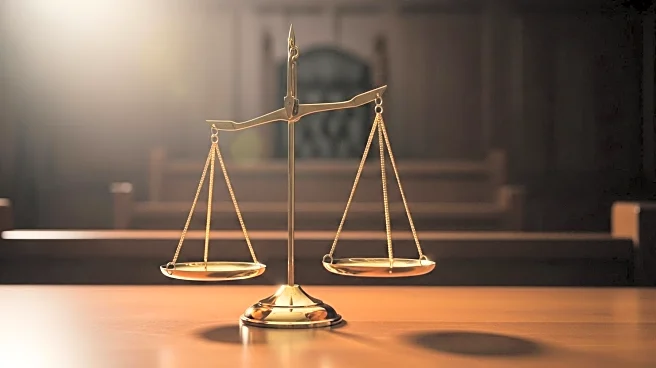What is the story about?
What's Happening?
A federal judge in Virginia has denied the Justice Department's request to extend discovery deadlines in the criminal case against former FBI Director James Comey. The judge ordered prosecutors to provide all discovery materials to the defense by 5 p.m. on October 13. Comey, who served as FBI Director from 2013 to 2017, was indicted on September 25 in the Eastern District of Virginia on charges of making false statements to Congress and obstructing a congressional proceeding. The indictment alleges that Comey falsely claimed during a 2020 Senate Judiciary Committee hearing that he had not authorized anyone at the FBI to act as an anonymous source in news reports. Prosecutors argue that Comey knew this statement was untrue and had authorized another individual to serve as a confidential source. Comey has pleaded not guilty to the charges.
Why It's Important?
The case against James Comey is significant as it involves a former head of the nation's top law enforcement agency accused of lying to Congress and obstructing a legislative inquiry. This prosecution raises questions about truthfulness, accountability, and political motives in high-profile legal proceedings. The outcome could influence public confidence in the Justice Department's pursuit of high-ranking officials for statements made in oversight settings. It may also redefine the boundaries of legal accountability for government officials, impacting how future cases are handled and perceived by the public.
What's Next?
The Justice Department must comply with the court's order to deliver all discovery materials to Comey's defense team by the specified deadline. Both parties are required to finalize or litigate a protective order governing sensitive evidence. The first round of pretrial motions is due on October 20, with a second round due on October 30. Hearings are scheduled for November 19 and December 9. The case is set for a jury trial on January 5, 2026, where the court will determine whether Comey knowingly misled Congress or is facing a politically motivated prosecution.
Beyond the Headlines
The legal proceedings against Comey could have broader implications for the Justice Department's approach to prosecuting high-ranking officials. It may lead to discussions about the balance between political accountability and legal fairness, especially in cases involving sensitive or classified information. The case also highlights the challenges of maintaining transparency and integrity in government operations, potentially influencing future legislative and judicial reforms.















